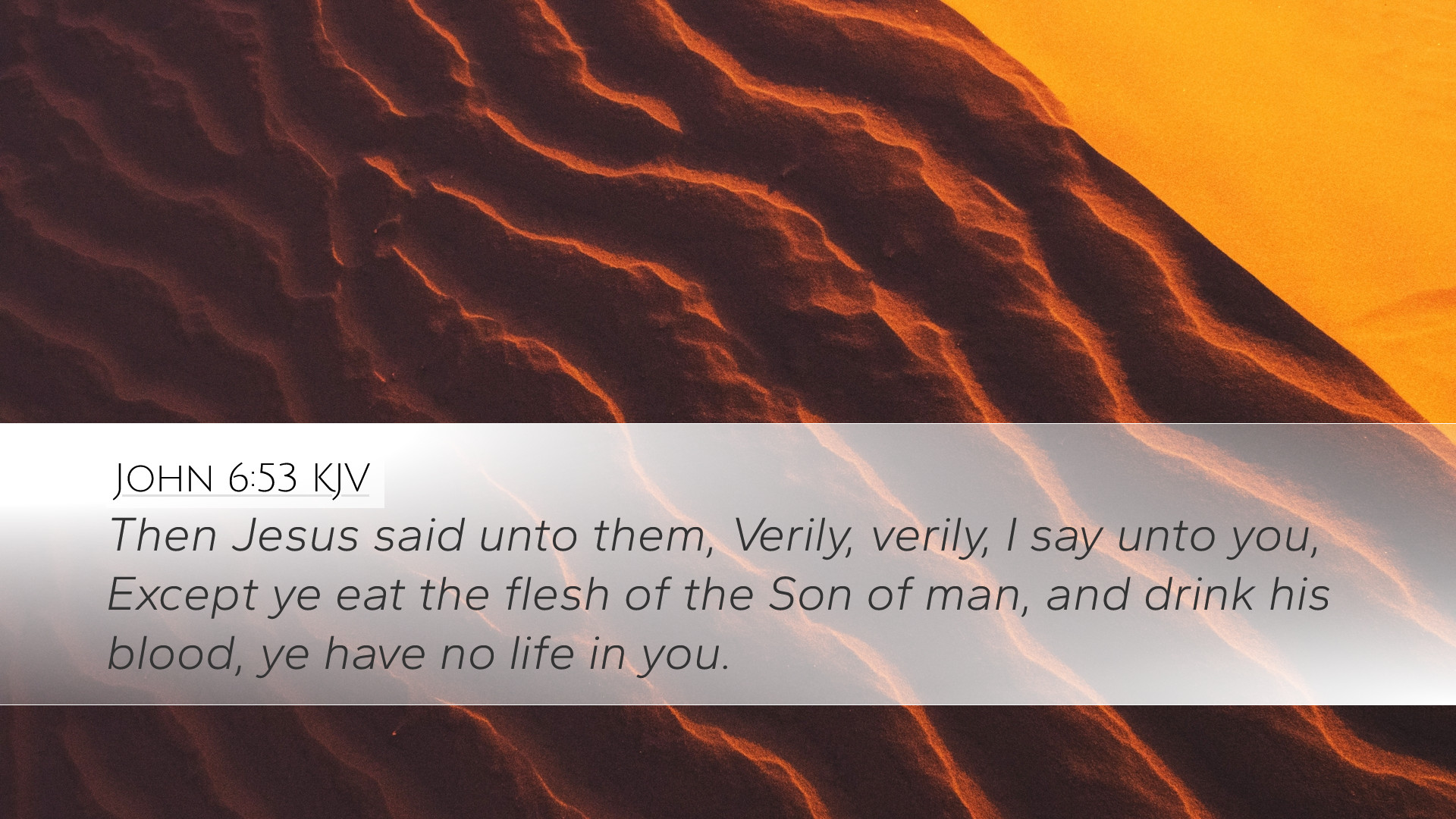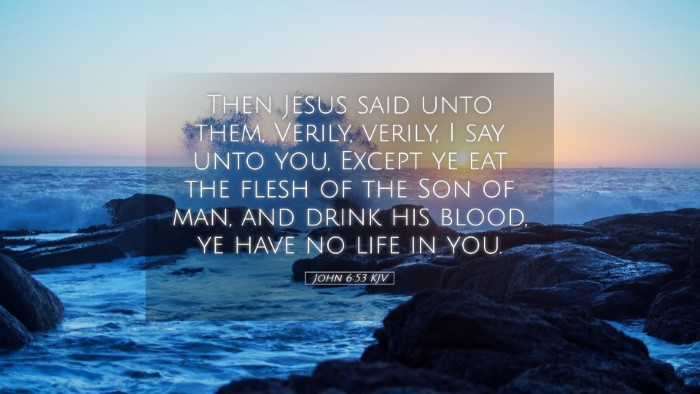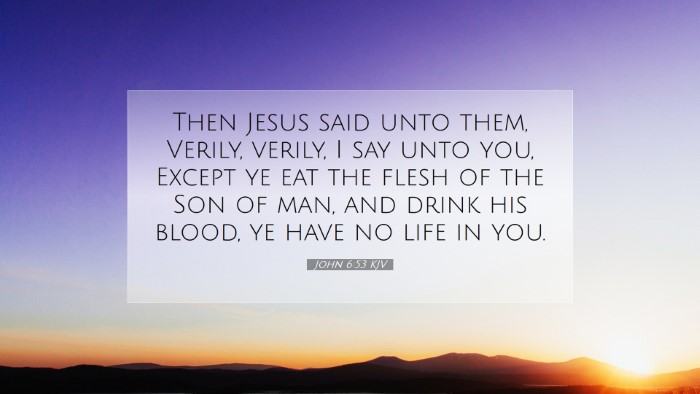Commentary on John 6:53
John 6:53 states: "Then Jesus said to them, 'Most assuredly, I say to you, unless you eat the flesh of the Son of Man and drink His blood, you have no life in you.'
This verse stands at the heart of Jesus' discourse on the Bread of Life, where He introduces profound theological truths about communion and the necessity of partaking in His sacrifice for eternal life.
Contextual Background
In the broader narrative surrounding John 6, Jesus has just fed the multitude with five barley loaves and two small fish. This miracle prompts a deeper discussion about spiritual sustenance. The crowd, having experienced the miracles, seeks Jesus for more than just physical food. They are hungry for understanding.
Theological Significance
The statement “unless you eat the flesh of the Son of Man and drink His blood” is highly significant, indicating the dual elements of partaking in Jesus’ sacrifice and the consuming of His life and teachings.
- Eating His Flesh:
This phrase is often understood symbolically. Mathew Henry comments that eating the flesh refers to believing in Christ's human nature and the full acceptance of His sacrifice. To 'eat' is to accept and internalize the truth of Christ's incarnation and atoning work.
- Drinking His Blood:
Similarly, the drinking of blood can be understood as a call to enter into a covenant relationship with Christ. Albert Barnes emphasizes that His blood signifies the new covenant, which, as outlined in the Synoptic Gospels, is poured out for many for the forgiveness of sins. Drinking His blood encompasses the acknowledgment and acceptance of the ultimate sacrifice He made for humanity.
Life in Christ
Jesus presents a stark warning: "you have no life in you". This phrase highlights the urgency of His message. Adam Clarke notes that spiritual life cannot exist without an active participation in the redemptive work of Christ. The statement implies that mere external adherence to rituals or a nominal faith is insufficient for spiritual vitality.
In essence, this verse challenges believers to consider the depth of their relationship with Christ. Life in Him is not merely about following moral teachings or engaging in religious practices; it requires an intimate union with Him, symbolized through the metaphor of eating and drinking.
Historical Context and Early Church Reflection
Early church interpretations placed significant emphasis on Eucharistic themes in this verse. Augustine of Hippo argued that Jesus was foreshadowing the Last Supper, where believers partake in communion as a means of grace, emphasizing that the bread and wine are not merely symbols but instruments of divine grace.
The Catholic tradition, in particular, holds this verse as foundational for the doctrine of transubstantiation, teaching that the elements of the Eucharist become the actual body and blood of Christ during Mass. However, Protestant interpretations vary, often understanding the communion elements as symbolic yet deeply significant acts of remembrance and fellowship with Christ.
Applications for Believers
What does it mean for contemporary believers to "eat" and "drink" in the context of faith?
- Intimacy with Christ:
To eat and drink Christ is to cultivate a relationship characterized by intimacy and reliance. It involves prayer, scriptural intake, and obedience to His commandments.
- Communion and Fellowship:
This verse also calls believers to regularly partake in communion within the church, emphasizing the need for collective remembrance of Christ's sacrifice and nurturing spiritual life through community.
- Spiritual Nourishment:
Just as physical food sustains the body, so spiritual nourishment is vital. Pastors and leaders are tasked with guiding congregations in feeding on the Word of God, offering teachings that draw upon the depth of Scripture.
Conclusion
In John 6:53, Jesus presents a challenging and profound call to His followers. The invitation to eat His flesh and drink His blood unveils a deeper reality of faith that transcends mere belief. It encapsulates the necessity of understanding Christ's incarnation and sacrificial death as essential to spiritual vitality and eternal life. For pastors, theologians, and students, this text calls for rigorous examination of one's faith and an encouragement to engage fully with the life-giving presence of Christ.


